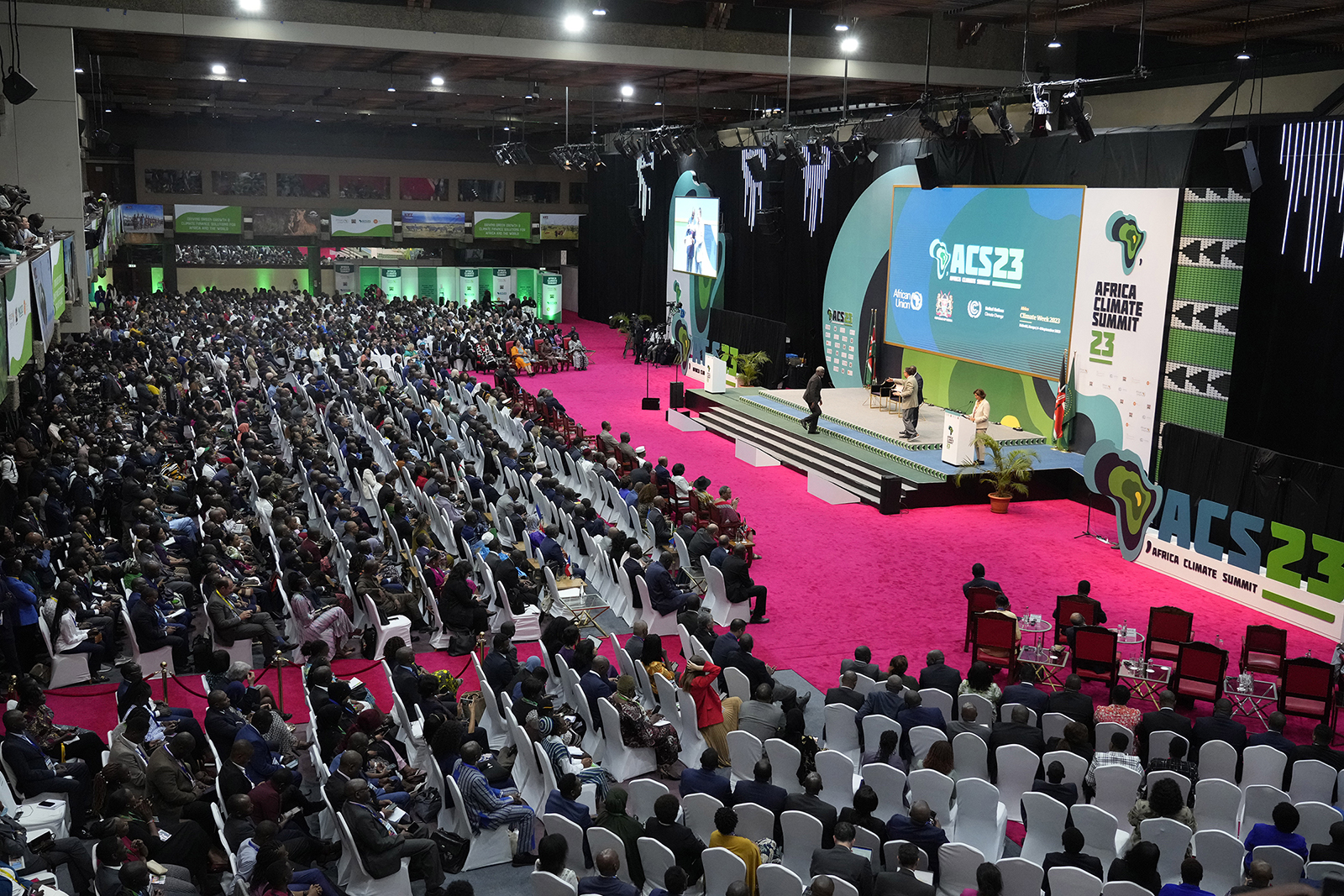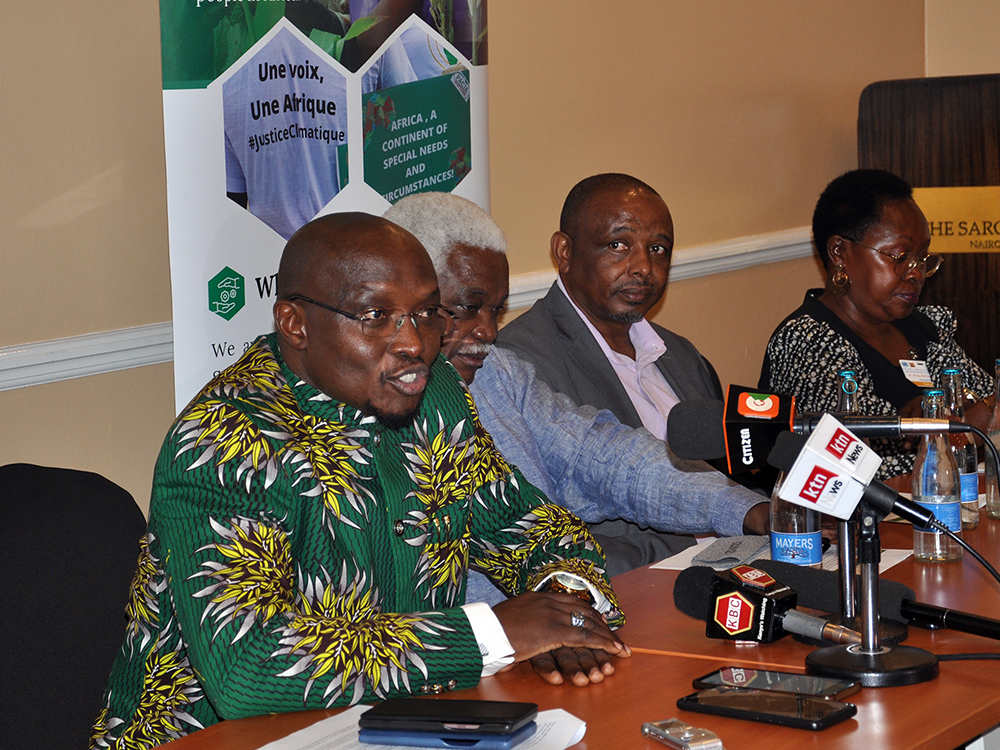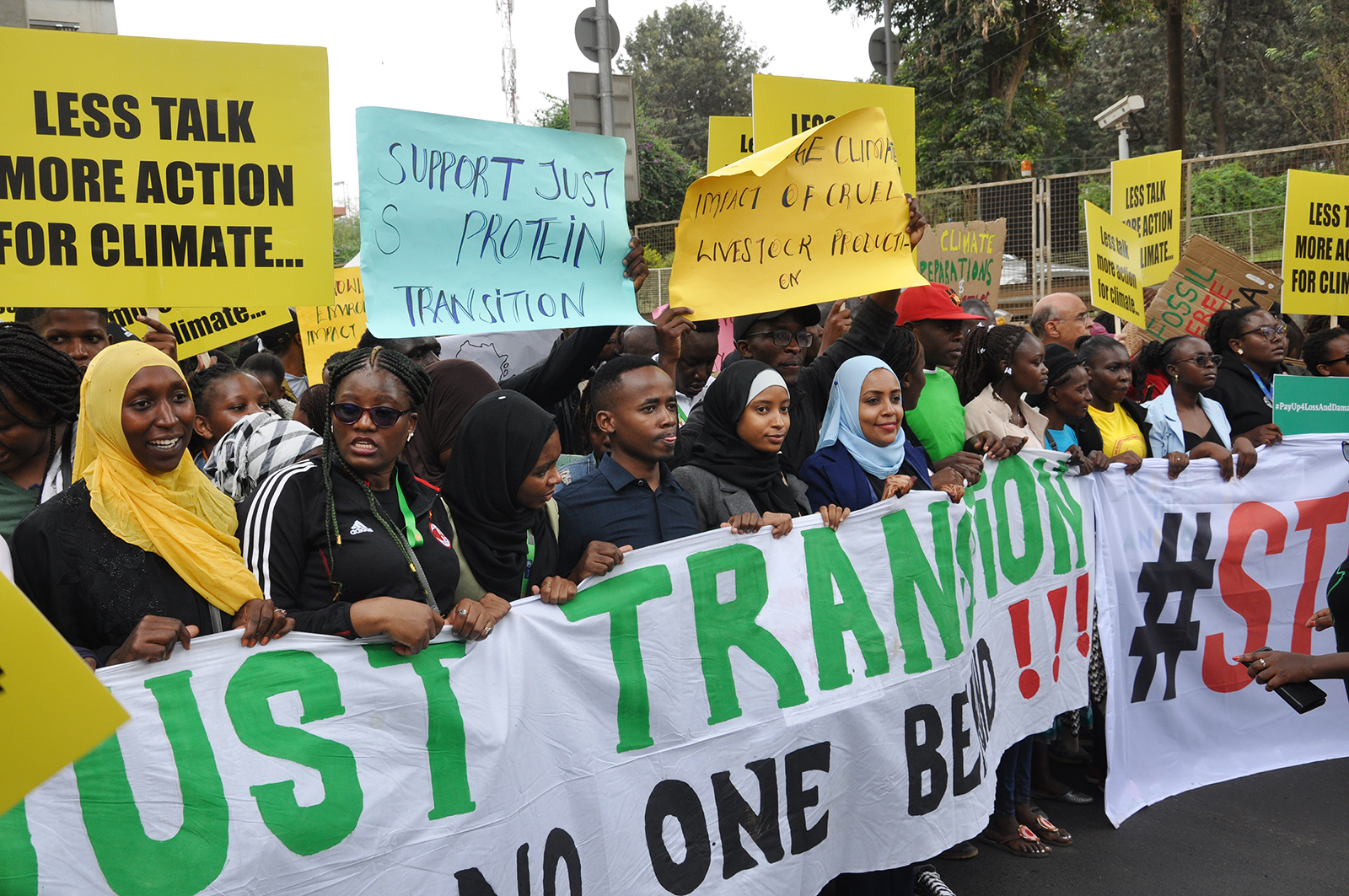
NAIROBI, Kenya (RNS) — At the close of an inaugural summit on climate change hosted this week by the African Union and the government of Kenya, activists who had demanded more than carbon credits and other glossy solutions to deal with climate justice issues rejected the declaration issued Wednesday (Sept. 6) by the political and corporate leaders in attendance.
The document, the Nairobi Declaration, urged developed nations to honor earlier promises of providing $100 billion annually to finance climate remediation. It also called for reforms of the global financial systems to boost climate mitigation and adaptation, and a financial system that allows debt restructuring and relief.
These provisions fell short of expectations that the summit would consider human rights, gender equality and intergenerational equity. The activist groups in their own statement said it imposed “failed carbon markets on the continent” and that old colonial attitudes continued to dictate Africa’s climate policy.
“We hoped this first African climate summit would see a radical vision for Africa, but the final declaration was disappointingly similar to previous summits that produced inadequate results,” said Mohamed Adow, founding director of Power Shift Africa, a think tank.
As political and corporate leaders gathered on Monday for the three-day summit, whose official theme is “Driving Green Growth and Climate Finance Solutions for Africa and the World,” demonstrators gathered at a park in Nairobi near the summit venue for what was dubbed “the Real Africa Climate Summit People’s March.”

Delegates follow the closing session of the Africa Climate Summit at the Kenyatta International Convention Centre in Nairobi, Kenya, Sept. 6, 2023. (AP Photo/Khalil Senosi)
Faith communities were well represented amid chanting, singing and dancing to drums and brass instruments. A Christian priest and Muslim sheikh walked together, while a lone Catholic nun waved a placard, one of many emblazoned with slogans such as “Climate justice now” and “Destroying the planet is haram.”
“This summit is very important for Africa, since there are a number of things that are happening and which we are saying must stop,” the Rev. Borald Matovu, a Ugandan Anglican priest linked to Green Faith International, told Religion News Service during the march.
The priest explained that the effects of climate change are being felt most by cattle farmers, whose traditional grazing areas have been hit by severe water and food shortages.
“That’s where we are here. We call the Western nations and other people to stop what they are doing, so that Africa is a fossil free continent,” said Matovu.
“We say that matters of climate change cannot be politicized, reduced to economies,” said the Rev. Gibson Ezekiel Lesmore, a Lutheran priest who is the director of programs for the All Africa Conference of Churches. “And (climate change) must be treated as a matter of life and death,” Lesmore told a news conference in Nairobi on Sunday.

The Rev. Gibson Ezekiel Lesmore, left, speaks at a news conference in Nairobi, Kenya. RNS photo by Fredrick Nzwili
Lesmore said that faith leaders, whom he called the first responders to climate disasters, have been crying out on behalf of Africans most affected by the escalating temperature of the globe and its collateral effects.
Ashley Kitisya, a local campaigner for the Laudato Si’ Movement, an international Catholic group named for Pope Francis’ 2015 encyclical adressing climate change, said she was marching to express concern that climate measures supported by many international leaders risked overlooking issues that affect ordinary lives.
“We demand equitable justice for people who have been impacted by fossil fuels,” said Kitisya. “We are calling for renewable energy. We are marching to send a message that we are here and we do not want to be pushed to someone else’s agenda.
“People on the ground do not want to know much about the “carbon credits, but how they can manage and mitigate the droughts,” she added.
In his welcome address, Kenyan President William Samoei Ruto seemed to echo these sentiments, telling delegates that the summit that would not talk about north versus south, developed versus developing or polluters versus victims, but real solutions for those on the ground.
“Let me be clear: These conversations are necessary. Africa’s carbon footprint remains small, but the human toll of climate change is disproportionately high,” said Ruto. “The urgency to address loss and damage, and to configure appropriate financial mechanisms for resilience grows with each extreme weather event and each bout of climate-induced insecurity.”

Demonstrators demanding climate action march through Nairobi, Kenya, Sept. 4, 2023. RNS photo by Fredrick Nzwili
But Lesmore, the Lutheran priest, recalled that during the last U.N. Climate Change Conference, known as COP27, held in Egypt, promises to establish a loss and damage fund had triggered celebrations among advocates for vulnerable populations. But mechanisms for the fund’s operations, he said, had never been put in place.
“We see deceit. We see lies. We see hypocrisy. We are seeing a new narrative. The carbon market being dangled to our heads of states as the solution,” said Lesmore at the news conference Sunday. “As faith leaders we are saying no. Let’s look at aspirations and expectations of the African people.”
The declaration did little to change this history, according to activists. Dean Bhekumuzi Bhebhe of the environmental organization Don’t Gas Africa, told a news conference on Wednesday that Africans had hoped the summit would provide real medicine for what ailed the continent’s climate problems.
“But we got painkillers. This is a wasted opportunity,” said Bhebhe.
